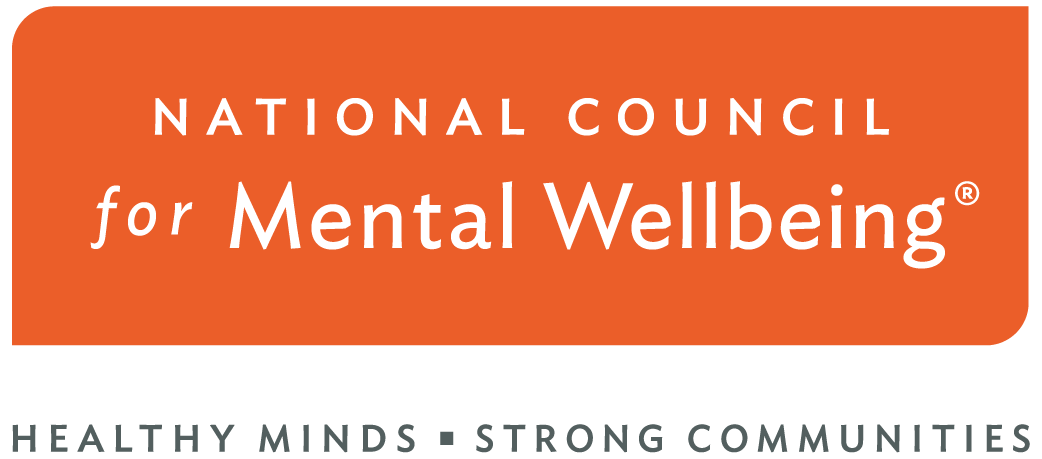The Peer Recovery Center of Excellence is housed at the University of Missouri-Kansas City’s (UMKC) Collaborative to Advance Health Services. In addition to our peer-led Steering Committee, UMKC has partnered with the National Council for Mental Wellbeing (NCMW), the University of Wisconsin-Madison (UW), and the University of Texas-Austin (UT), and One World Recovery Network (OWRN) to provide training and technical assistance (TA) to the nation’s peer recovery support workforce and recovery communities.
Just as peer recovery support specialists connect with others to foster growth and achieve goals, we partner with other organizations in order to accomplish the goals of the center and meet the needs of the field. Having a variety of perspectives and the ability to share information widely is key to being able to connect with and serve as a resource to the peer recovery field. By partnering with leading organizations within the addiction recovery field, we are able to expand our capacity to better serve the peer recovery specialist workforce.

UMKC is part of the public University of Missouri System and is one of 18 universities nationwide to have nursing, medicine, dentistry, pharmacy, and health education programs located on the same campus. The Collaborative to Advance Health Services (Collaborative) is located in UMKC’s School of Nursing and Health Sciences. The Collaborative’s mission is to advance health and wellness by bringing research to practice, supporting organizations through change processes, and providing high-quality training and TA. The Collaborative’s current and recent past TA projects include the ATTC and PTTC Network Coordinating Offices, ATTC CoE on Behavioral Health Needs of PPW and Families; Region 7 Mid-America ATTC; the ORN/State Targeted Response TA (ORN/STR-TA) National Operations and Mid-America Region; PCSS-MAT Exchange Lead; National Capacity-Building Assistance Provider Network for HIV Prevention National Marketing and Administrative Support Center; SBIRT health professions training to integrate SBIRT for SUD into academic preparation of nurses, social workers, dentists, medical students and residents; and the National Clinical Training Center for Family Planning.
How we collaborate: UMKC, in addition to acting as the Coordinating Center, leads efforts focused on evidence-based practice and practice-based evidence dissemination and implementation.

The National Council for Mental Wellbeing has more than 40 years of experience as a national thought leader advancing modern, research-based training, TA, and knowledge transfer activities on topics of behavioral health. The NCMW has designed, implemented, and evaluated over 1,500 initiatives to improve behavioral health practice at local, state, and national levels. The NCMW has trained staff at numerous organizations in domains of mental health literacy and appropriate interventions to address behavioral health challenges.
How we collaborate: NCMW leads efforts focused on the integration of peer recovery support specialists into new and expanding settings.

The University of Wisconsin-Madison houses The Center for Health Enhancement Systems Studies, a leader in supporting the behavioral health field. UW developed and promotes the NIATx model to facilitate organizational/systems change in human services settings and leads research to support people in SUD treatment. Research results include increased access to and retention in treatment and reduced relapse rates for people in recovery. UW currently serves as the Region 5 Great Lakes ATTC, MHTTC, and PTTC.
How we collaborate: UW leads efforts focused on building the capacity of Recovery Community Organizations (RCOs).

The University of Texas-Austin houses the Addiction Research Institute and focuses on substance use recovery and long-term health and wellness. It has been the home of the Region 6 South Southwest ATTC for 25 years. UT has collaborated with the Texas behavioral health agency on planning, design, implementation and evaluation of the state’s transformation to a ROSC for SUD services. This initiative included development of local ROSC collaborations, TA for RCOs and existing SUD treatment providers in implementation of the recovery model and integration of peer recovery support services.
How we collaborate: UT leads efforts focused on developing the peer recovery support specialist workforce.

One World Recovery Network (OWRN) is a Recovery Community Organization committed to Health Equity and Recovery. OWRN provides equitable access to peer support services for individuals, families, and communities facing substance use and mental health challenges. Through training a culturally competent peer workforce, OWRN offers a safe and inclusive environment for individuals to find solace and empowerment on their journey to recovery. OWRN bridges the gap between those in need and essential resources, fostering hope and transformation in communities.
How we collaborate: OWRN leads efforts focused on incorporating health equity into the work of peers and of the Peer Recovery Center of Excellence.
Funding for this initiative was made possible by grant no. 1H79TI083022 from SAMHSA. The views expressed in written conference materials or publications and by speakers and moderators do not necessarily reflect the official policies of the Department of Health and Human Services; nor does mention of trade names, commercial practices, or organizations imply endorsement by the U.S. Government.